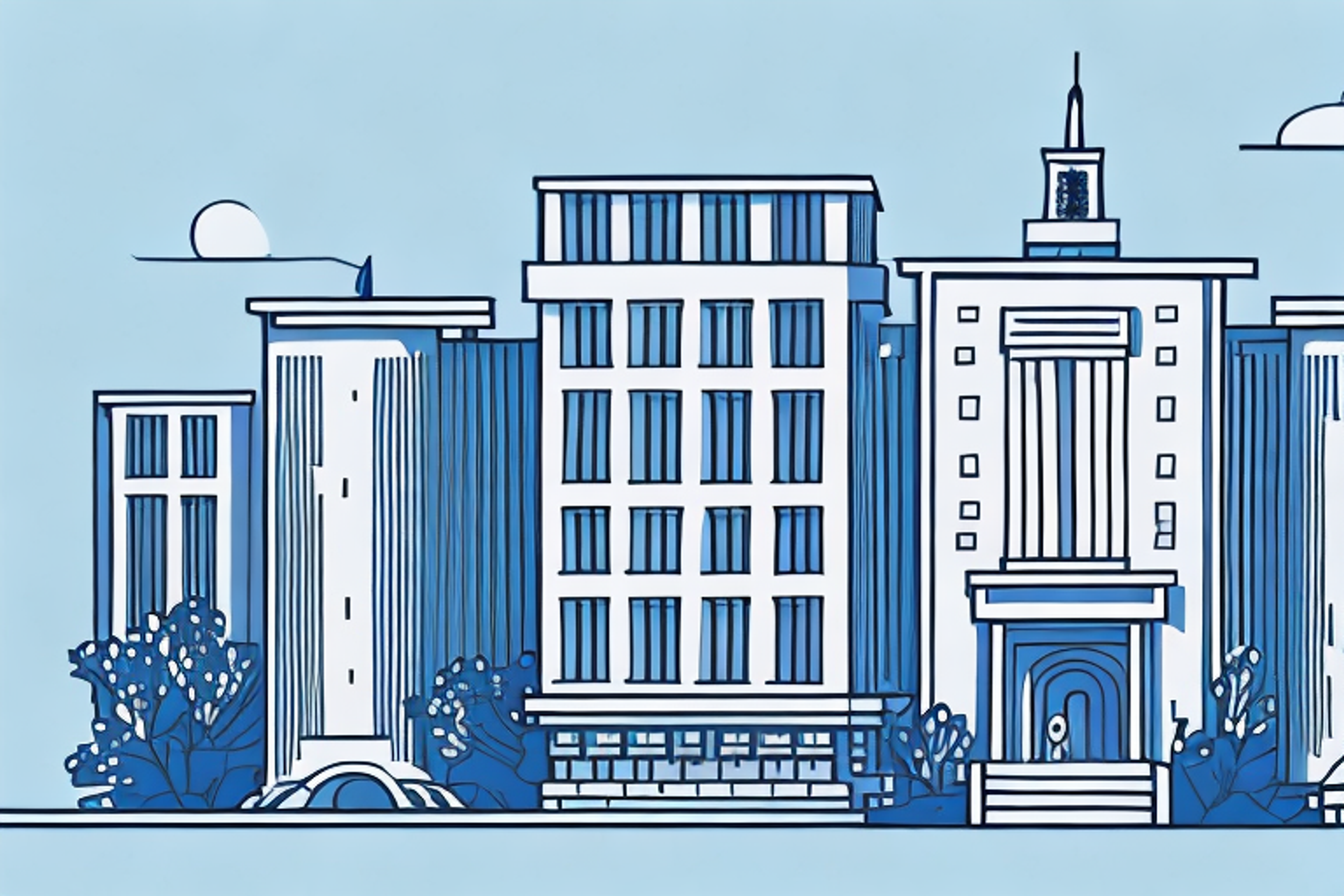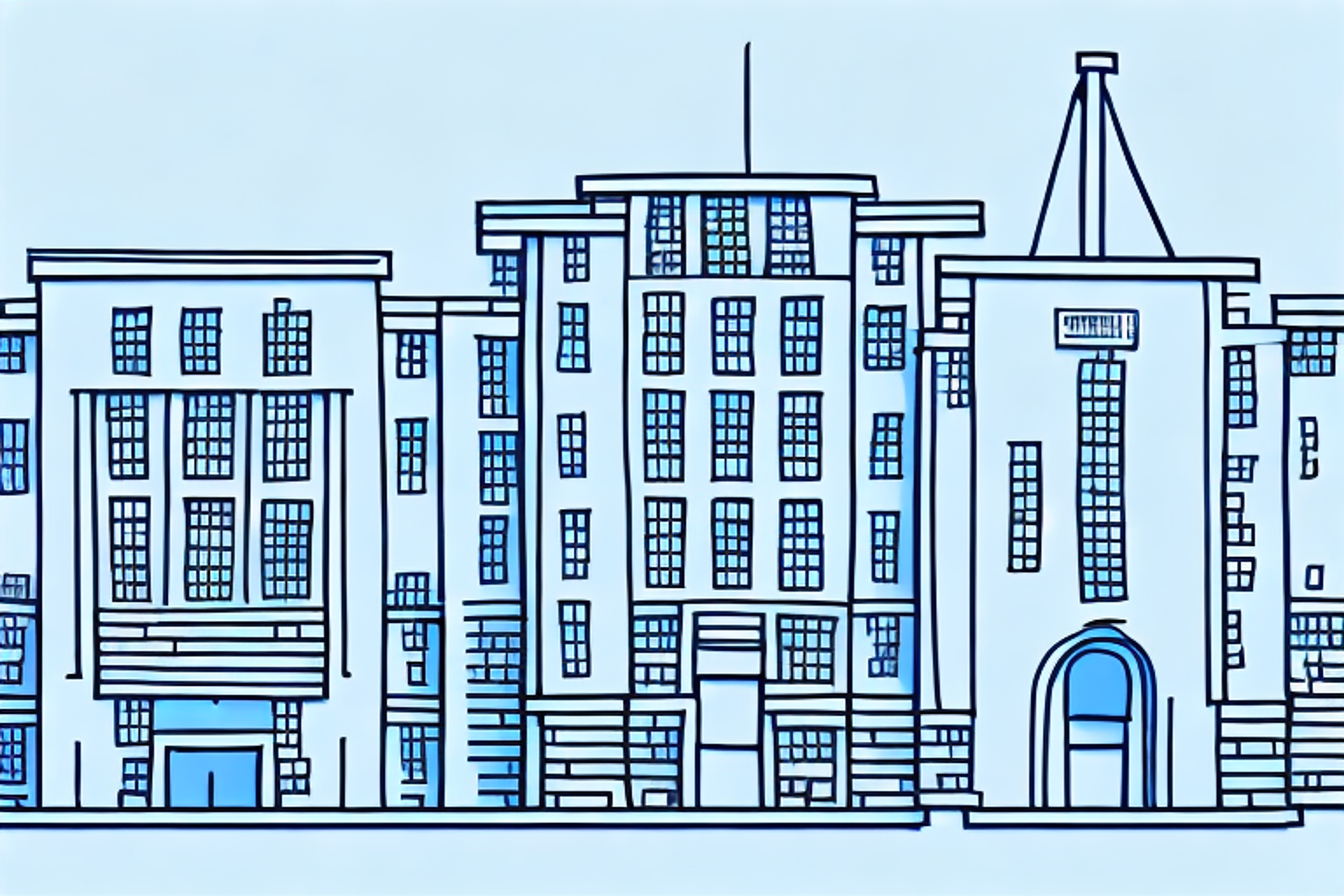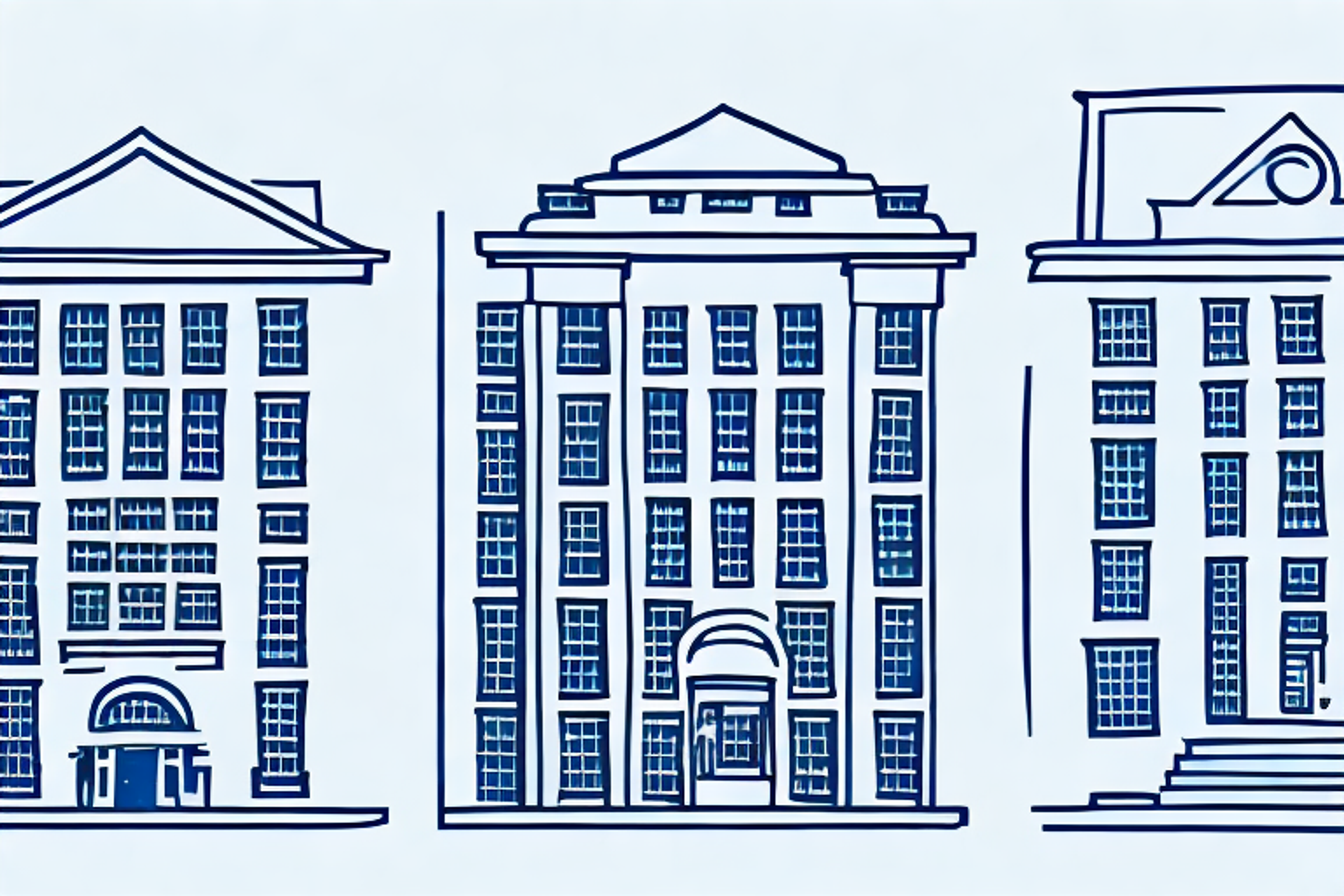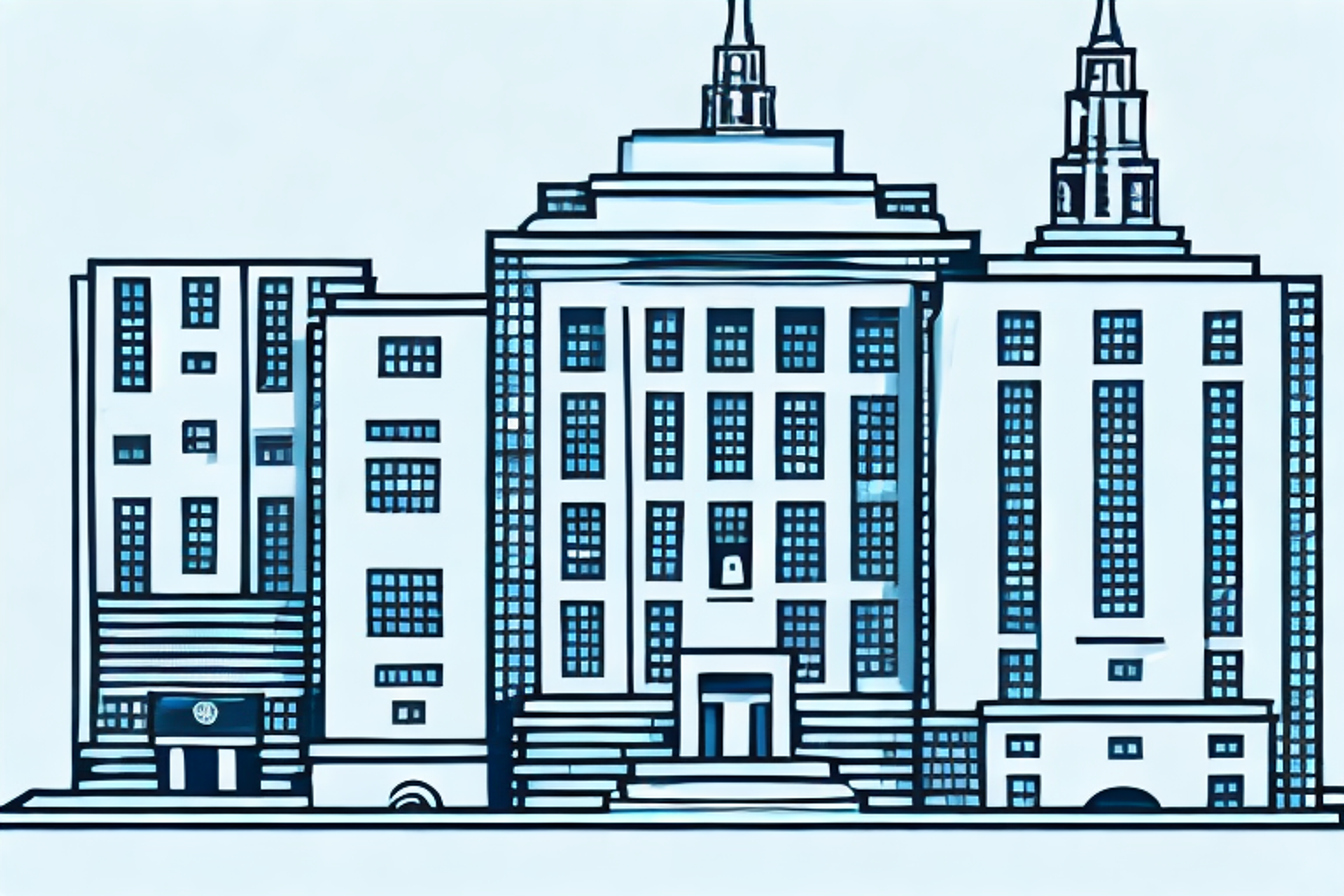University of Michigan--Ann Arbor Law School Vs. Cornell Law School: An In-Depth Comparison
If you're considering attending law school, you won't want to miss this in-depth comparison between the University of Michigan--Ann Arbor Law School and Cornell Law School.
Posted March 6, 2025

Table of Contents
If you're considering applying to law school, you might be weighing your options and trying to decide which school is right for you. Law school is a significant investment of time and money, and it's important to choose the institution that aligns best with your career goals and personal preferences. This article will compare two of the top law schools in the United States: the University of Michigan--Ann Arbor Law School and Cornell Law School.
Introduction: Understanding Law School Comparison
Comparing law schools can be a daunting task. With so many factors to consider, it's easy to get overwhelmed. That's why it's important to prioritize the elements that matter most to you. Do you want to attend a school in a particular location? Are you interested in a specific field of law? Do you have a financial plan in place? By asking yourself these questions and others, you can start to narrow down your choices and make informed decisions.
One important factor to consider when comparing law schools is the school's reputation. A law school's reputation can impact your future job prospects and networking opportunities. Research the school's reputation in the legal community and among alumni to get a better understanding of its standing in the industry.
Another important consideration is the school's curriculum and course offerings. Look into the courses offered and the faculty teaching them to ensure that the school aligns with your academic and career goals. Additionally, consider the school's experiential learning opportunities, such as clinics and internships, as these can provide valuable hands-on experience and connections in the legal field.
A Brief Overview of University of Michigan--Ann Arbor Law School
The University of Michigan--Ann Arbor Law School is located in Ann Arbor, Michigan, a vibrant college town known for its diverse community and cultural offerings. The law school is renowned for its interdisciplinary approach to legal education, emphasizing collaboration and innovation. UM Law School offers a variety of programs, including Juris Doctor (JD), Master of Laws (LLM), and Doctor of Juridical Science (SJD). The school has a stellar reputation for its academic rigor and intellectual rigor, and its alumni include prominent figures in law, politics, and business.
One of the unique features of the University of Michigan--Ann Arbor Law School is its commitment to public service. The school offers a range of opportunities for students to engage in pro bono work and community service, including clinics and externships that allow students to work with real clients on real legal issues. Additionally, the school has a strong tradition of producing graduates who go on to work in public interest law, government service, and other fields that prioritize the public good. This commitment to service is a core part of the UM Law School experience and sets it apart from many other law schools.
A Brief Overview of Cornell Law School
Cornell Law School is situated in Ithaca, New York, a picturesque small town surrounded by natural beauty. Cornell Law School is among the top-ranked law schools in the country, known for its strength in the areas of corporate law, international law, and dispute resolution. The school offers JD, LLM, and SJD programs, as well as a joint JD/MBA program. Cornell Law School has a unique curriculum that encourages students to engage with real-world problems and explore multiple perspectives.
Additionally, Cornell Law School has a strong commitment to public service and social justice. The school offers numerous opportunities for students to engage in pro bono work and community service, including through its Public Service Initiative and the Cornell Legal Aid Clinic. The school also hosts a variety of events and lectures focused on issues of social justice and equality, providing students with the opportunity to learn from and engage with leading scholars and practitioners in the field.
Location and Campus Comparison
When deciding where to attend law school, location and campus atmosphere should be among the factors you consider. UM Law School is located in a college town that offers a lively and welcoming atmosphere. Students have access to a wide range of cultural and recreational activities, as well as networking opportunities in the legal and business communities.
Cornell Law School, on the other hand, is located in a natural paradise, boasting beautiful waterfalls and gorges that surround the campus. The surrounding area offers hiking and skiing, and the campus itself is architecturally impressive, with a blend of modern and historic buildings.
Another factor to consider when comparing the locations of UM Law School and Cornell Law School is the cost of living. UM Law School is located in a college town that has a relatively low cost of living, making it easier for students to manage their expenses. In contrast, the cost of living in Ithaca, where Cornell Law School is located, is higher, which can be a challenge for students who are on a tight budget.
Additionally, UM Law School is located in a region that is known for its warm and sunny weather, which can be a major draw for students who prefer a more temperate climate. In contrast, Cornell Law School is located in a region that experiences cold and snowy winters, which can be a challenge for students who are not accustomed to such weather conditions.
Admission Requirements and Acceptance Rates Comparison
Admissions requirements at both schools are rigorous, with a heavy emphasis on academic credentials, extracurricular activities, and work experience. UM Law School's acceptance rate in 2020 was 21.2%, while Cornell Law School's was slightly higher at 22.1%. Both schools receive high numbers of applications each year, so it's important to put together a strong application that highlights your achievements and goals.
Faculty and Curriculum Comparison
The faculty at UM Law School and Cornell Law School are both highly respected in the legal community and bring a diversity of experiences and perspectives to the classroom. UM Law School places a strong emphasis on interdisciplinary learning, which means that students benefit from exposure to a range of fields, including business, medicine, and public policy. The curriculum at UM Law School is designed to stimulate critical thinking and sharpen analytical skills, preparing students for success in a variety of legal careers.
At Cornell Law School, the curriculum is designed to give students a strong foundation in the law and help them develop practical skills that they can apply to their careers. The school also offers a variety of clinics and externships that allow students to gain hands-on experience working in the field. Cornell Law School is also known for its commitment to social justice and public service, offering numerous fellowships and programs designed to promote these values.
Tuition and Financial Aid Comparison
Tuition costs for law school can be a major burden for many aspiring students, and it's important to consider how much you're willing to invest in your education. For the 2021-2022 academic year, tuition and fees at UM Law School are $67,416 for both in-state and out-of-state students. Cornell Law School's tuition and fees for the same period are $70,585. While neither school is inexpensive, both offer generous financial aid packages to help offset the cost of tuition.
Student Life and Campus Culture Comparison
Law school is about more than just academics; it's also an opportunity to connect with other students and build a network of colleagues and contacts. Both UM Law School and Cornell Law School offer numerous student organizations and extracurricular activities that allow students to pursue their interests and make friends.
UM Law School is known for its vibrant and diverse student body, which fosters an open and collaborative atmosphere. The school hosts numerous events throughout the year, including lectures, symposia, and cultural celebrations. Students can get involved in a range of activities, from moot court to pro bono work.
At Cornell Law School, students can participate in a variety of extracurricular activities, including law journals, public interest groups, and student government. The school also hosts numerous social events and cultural activities, designed to create a strong community among the student body.
Career Services and Employment Rate Comparison
The ultimate goal of law school is to prepare students for success in their legal careers. UM Law School and Cornell Law School both have robust career services offices that provide students with a range of resources and support.
UM Law School's Career Services Office offers individualized counseling, job postings, and career fairs to help students find employment opportunities that align with their personal and professional goals. The school's employment rate for the Class of 2020 was 90.3%, with graduates taking jobs in a variety of fields, including law firms, corporations, and public interest organizations.
Cornell Law School's Career Services Office provides students with career counseling, resume reviews, and job search strategies, as well as access to a wide range of job postings. The school's employment rate for the Class of 2020 was 88.5%, with graduates taking jobs in fields like litigation, government, and academia.
Bar Exam Pass Rates Comparison
Passing the bar exam is a crucial step in becoming a licensed attorney, and it's important to consider each school's pass rates when making a decision. According to 2020 data, the bar pass rate for UM Law School graduates was 92%, while Cornell Law School's pass rate was slightly higher at 97%.
Alumni Network and Connections Comparison
The alumni network at each school can play a significant role in helping graduates secure employment, build relationships, and access resources and opportunities. UM Law School and Cornell Law School both boast impressive alumni networks and active alumni associations.
UM Law School's alumni network is global and diverse, with graduates working in a wide range of industries and sectors. The school hosts regular alumni events and offers opportunities for current students to connect with alumni through mentoring programs and networking events.
Cornell Law School's alumni network is similarly extensive and includes prominent figures in law, business, and government. The school offers a range of resources for alumni, including continuing education programs and access to career services.
Rankings and Reputation Comparison
Both UM Law School and Cornell Law School are highly regarded in the legal community and consistently rank among the top law schools in the country. According to US News and World Report, UM Law School is ranked #7 in the nation and Cornell Law School is ranked #13. Both schools are recognized for their academic rigor, intellectual diversity, and commitment to innovation.
Conclusion: Which Law School is Right for You?
Ultimately, the decision of which law school to attend is a personal one that depends on your individual goals and preferences. Think carefully about the factors that matter most to you, such as location, campus culture, curriculum, and career services. Consider visiting both schools and talking to current students and alumni to get a sense of the atmosphere and resources available.
Final Thoughts on Choosing the Right Law School
Choosing the right law school is a big decision, but it's an exciting opportunity to pursue your passion and advance your career. By doing your research and carefully considering your options, you can find the school that will help you achieve your goals and provide you with a rich and rewarding educational experience.











